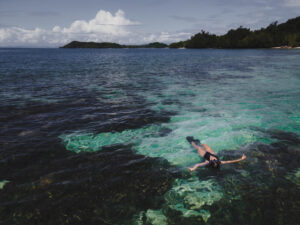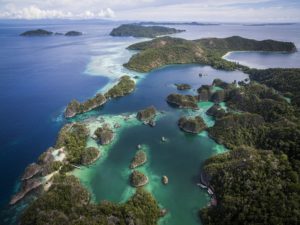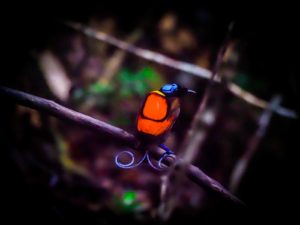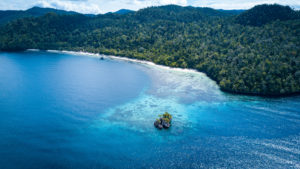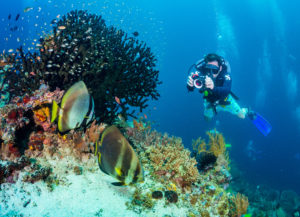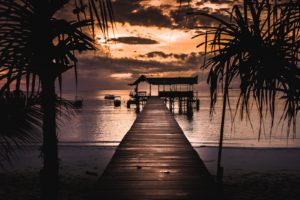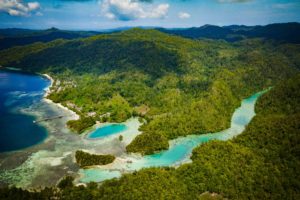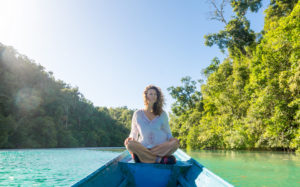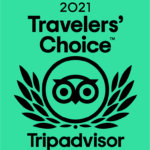Maximize Benefits to the Environment and Minimize Negative Impacts
We are all aware of the impact human activities are causing on the planet. Each of us adds to this, and each can do a little to help. Our general awareness has been raised, and the negative effects are evident and proven. As a result, the public is choosing carefully sustainable products and services. For us as divers and nature lovers, we want to raise awareness, providing an example of how things can be done through a different approach, always respectful to the ecosystems and the environment that takes care of us..
Environmental sustainability understands that the economic system is another part of the natural one, that is by definition comprised on it. Using resources sustainably is then a necessity that the economic system needs to respect in order to maintain progress and economic benefit. If not, we might be able to grow for some more years, but at some point, the capacity of ecosystems would be totally trespassed. Following this simple idea, Biodiversity’s goal towards environmental sustainability is to reduce our impact on nature as much as possible, at the same time that we take actions to compensate for the unavoidable impact that human activities have over nature. Always baring in mind that we are completely dependent of natural systems and we, and not in reverse, must adapt to its rules and boundaries.
Even if we do not consider ecosystem services and economic benefits, we should value natural systems by the effect on well-being that they provide (art, culture, beauty, spiritual values). Going further, we should respect and take care of nature just because of its intrinsic value, by its right to exist without being damaged by our actions.

CONSERVING RESOURCES
Water risk is assessed, water consumption is measured, and steps are taken to minimize overall consumption. Water sourcing is sustainable and does not adversely affect environmental flows or the needs of the community.
- Towels are changed every two days and sheets every four days, and dried with natural sunlight.
- Our WC is bucket-style, instead of toilet tanks, and our faucets are low-flow, as well as the showers.
- All our faucets are low-flow. We continually check for and respond to leaking faucets and toilets.
- Direct rainwater downspouts into the gardens.
Whenever possible we try to use our locally produced materials, such as wood, to build our own furniture, our own handcrafts and our own infrastructure (like cottages and common areas). In this way we considerably reduce the energy needed for the production and transport of these items.
Related to food and beverages, we always try be very specific on the products we buy, and we produce our own fresh drinks and dishes following traditional Indonesian recipes. With these measures we try to provide best quality products for our guests at the same time that we reduce packaging and plastic containers.
Whenever possible and always following hygiene and safety protocols, we try to fix all of our materials. Going further, we try to always take good care of all of our goods, so that we are able to extend their lifespan as long as possible. If something works properly and it has been well taken care of, even if it does not look brand new and it is not the last model, there is no real need to change it and re-generate the impact of its production.
REDUCING POLLUTION
Significant greenhouse gas emissions are controlled by providing training to our team. We are also developing continuous analysis to identify possible problems with the system relating to greenhouse gas pollution, and procedures are implemented to avoid or minimize them. We also do our best to diminish the energy consumption.
- Since 2014, we use solar energy with Photovoltaic Panels, batteries, and technology advance inverters. Petrol Generator helps the energy usage during peak hours and with our solar panels to have 24 hours of electricity.
- Energy saving & LED light bulbs are used throughout the whole property.
- Natural gas is used for cooking.
In a world full of plastics and all other types of pollutants, at Biodiversity we take waste management very seriously. Waste, including food waste, is measured. Mechanisms are in place to first reduce waste, and then reuse or recycle it whenever possible. Any residual waste disposal has no adverse effect on the local population or the environment.
- We have recycling bins in public areas for cans. Aluminum cans are sold in Waisai and Glass to Sorong.
- Glass is sepparated by the staff and recycled for decoration when possible.
- We make cloth rags from retired sheets.
- We re-use our dirty oil from our generators and compressors as a protecting paint for wood.
- We minimize the amount of paper of our business by emailing invoices and using wipe-clean systems.
- We have eliminated small plastic bottles for amenities and replaced them with bulk water dispensers.
- Batteries are all rechargeable.
- Plastic containers: For kitchen supplies we buy bulk products (tomato sauce, chilli sauce, cooking oil) and we have refillable containers for guest dining and the kitchen. The empty bulk containers are used for kerosene storage for our stove.
- Machine Oil Containers: we buy bulk containers and use the empty containers for kerosene fuel storage.
- Whenever possible, using a good dose of creativity we try to use “waste materials” for new purposes. In this direction we always prioritise waste reduction to waste recycling.
- Waste water, including grey water, is effectively treated and is only reused or released safely, with no adverse effects to the local population or the environment.
- Plastic wrappers: we do not sell any products with plastic wrappers (except our t-shirts).
Regarding transportation means we face a complex situation since the resort is located on a very isolated location, which means that we have to get everywhere needed by boat. However, we try to reduce other transport outputs and maximize the efficiency of every boat trip that we organise.
- We are very strict with transport organization. If one boat is going to Waisai, we always try to be very efficient with the goods, materials and passengers that we carry each time. In that way, instead of doing four trips, we will do two for all needed objectives.
- We always use the ferry to bring all necessary items and products, avoiding private transportation (for obvious economic reasons as well). That means that the Greenhouse gases emissions that our transport suppose are shared with hundreds of other passengers.
- Our boat divers are trained to use our boats and fuel in the best and more efficient way.
The use of harmful substances, including pesticides, paints, disinfectants, and cleaning materials, is minimized, and substituted when available by innocuous products or processes. All storage, use, handling, and disposal of chemicals are properly managed. Unfortunately, we are very remote and we do produce some waste that we have to incinerate.
- We continually check our generators, outboard motors, and compressors, and provide maintenance before the required time, in order to reduce hazardous emissions and to offset their carbon footprint.
- All our machines have updated logbooks, with the number of hours of operation.
- We change the oil before the maintenance date recommended by the factory.
- We designed protocols for efficient use and processing of harmful substances is the best way to eliminate their harmful effects on the environment.
CONSERVING BIODIVERSITY
- Biodiversity tries to help whenever possible different conservation programmes that might ask for our help. For example, citizen science project that ask for data of diving sites to protect different species, such as sharks or turtles, or sending information related to beach clean-ups that is used by certain organizations.
- We have designed our own diving sighting form, that can be filled by our guests after the dives. We use that information to create our small database and to provide previously mentioned organizations with that precious data.
- As always, we try to raise awareness of the importance of nature’s conservation, firstly by acting as a sustainable role model and secondly through the development of different talks and presentations for the guests that provide them with specific information about biodiversity and conservation.
- The resort tries to reduce its human impact as low as possible so biodiversity is not affected by its activities. We always try to develop compensatory contributions in case of any impact, apart from the correspondent rehabilitation.
- We frequently develop collaboration projects with biologists and sustainability counsellors. These professionals help us bring a more scientific approach to our activities and provide essential skills and knowledge to the resort. Some of the tasks they support are biology talks, helping with conservation programmes, push community building events, reporting, etc.
One of the biggest threats to biodiversity comes from pollution. In this case, mainly coming from the sea. After assuring that we are reducing that pollution to its minimum form, we want to give a little bit back of what Raja Ampat always provides. In this direction, we develop clean-up activities, so that we keep the surrounding environment as pristine as possible:
- Once a week, or more frequently when necessary, we organize beach cleaning ups with both our staff and the volunteer guests. We also use some of our resting time between dives to maintain some of the islands and their beaches clean and beautiful.
- Organising community clean-ups with the surrounding villages. In this way, we do not only clean up their local beaches and streets, but we make local populations aware of the problem that pollution represents for them and the environment. By encouraging them to maintain their local areas clean, we try to make them understand that keeping it that way is for their own benefit, attracting tourism and keeping hygienic conditions for them and their kids.
- Diving as if the ocean was our home. We always try to pick up all the underwater plastic items that we find.
We always try to keep our resort area and local beach in good conditions. Our staff works untiringly to keep the beach clean and reduce the amount of plastic on it.
To reduce the use of water, to bring back with them their used batteries (as here they are not properly recycled), to pick any plastic or waste they may find during their dives or excursions, and in the end, at every moment. We try to make our visitors aware of the importance of taking the maximum care of our environment every single moment and every single day.
- We recently provided each room with a sac so anyone interested in reducing the amount of plastics in the local beach is more than welcomed!
- By giving periodically talks that raise awareness of nature values and the activities that threat them.
LANDSCAPE CONSTRUCTION
For all our facilities, we have followed appropriate sustainable practices and used materials by craftsmen from the surrounding villages. Any disturbance of natural ecosystems is minimized. That is why you can see Kus-Kus (marsupial), Birds and many insects around!
- All our cottages are built in the traditional Papua architecture, considering the capacity and integrity of the natural and cultural surroundings.
- The layout of the resort is arranged so as not to disturb the native habitat and thus to support conservation of the flora and fauna. We have tried to preserve the existing vegetation, cutting a minimum number of plants to create space for the resort, integrating our accommodation with nature to the fullest.
- Landscaping: Mowed landscaping is being replaced by ground cover.
- Left over wood from construction process is reused for fertilizer and decoration in our garden.
- All flower arrangements for rooms & the restaurant come from our gardens only. Continuous planting – To encourage the local bird & butterfly population.
YOU MAY ALSO LIKE

COMMUNITY SUSTAINABILITY
Please see how your visit is helping our efforts of spreading the benefits of tourism to the local area.

BECOME AN ECOTOURIST
We all must make efforts to minimize the impact our activities have on our planet. We have a long way to go! Important to talk the Talk AND start the Walk!

BIODIVERSITY KEY PROJECTS
University scholarships for Yenbeser Village youths, library and health programs are among our most proud efforts so far.





